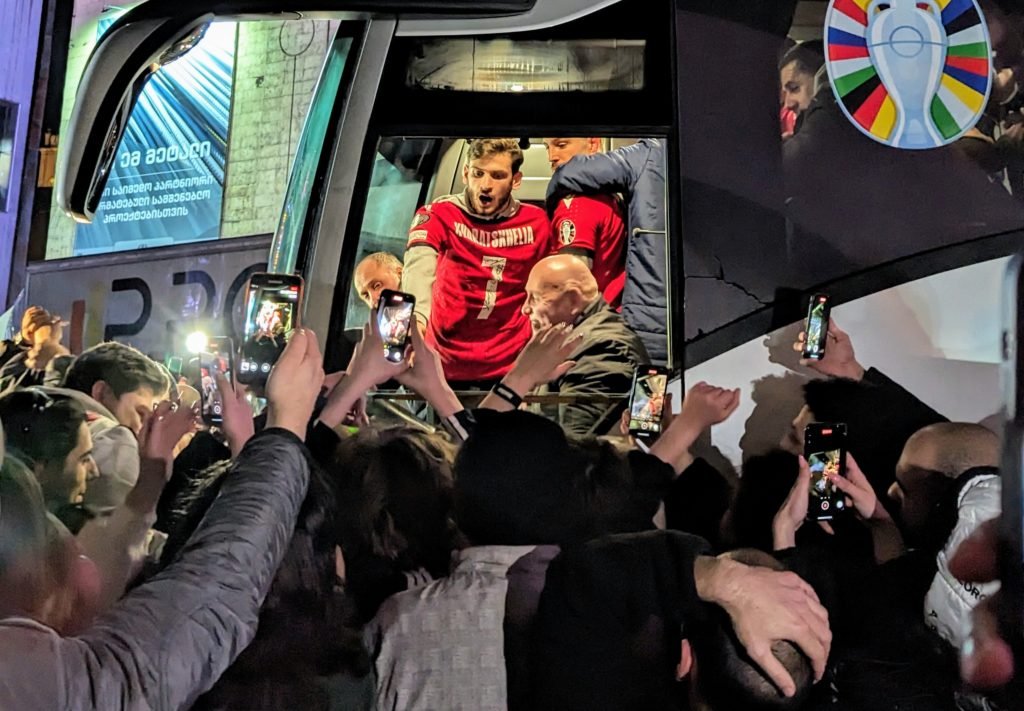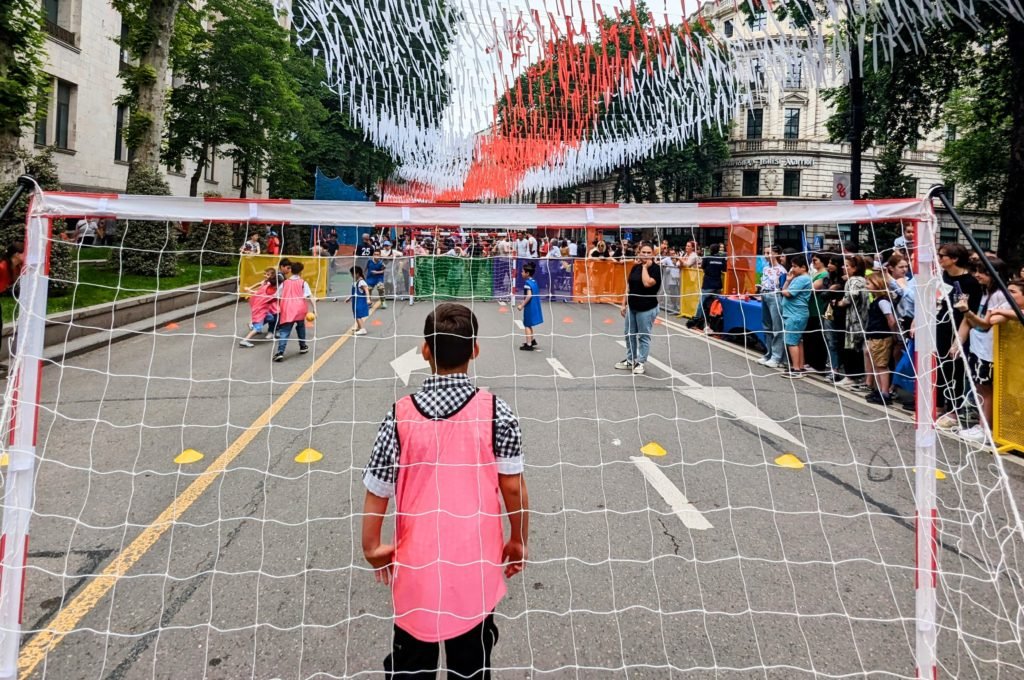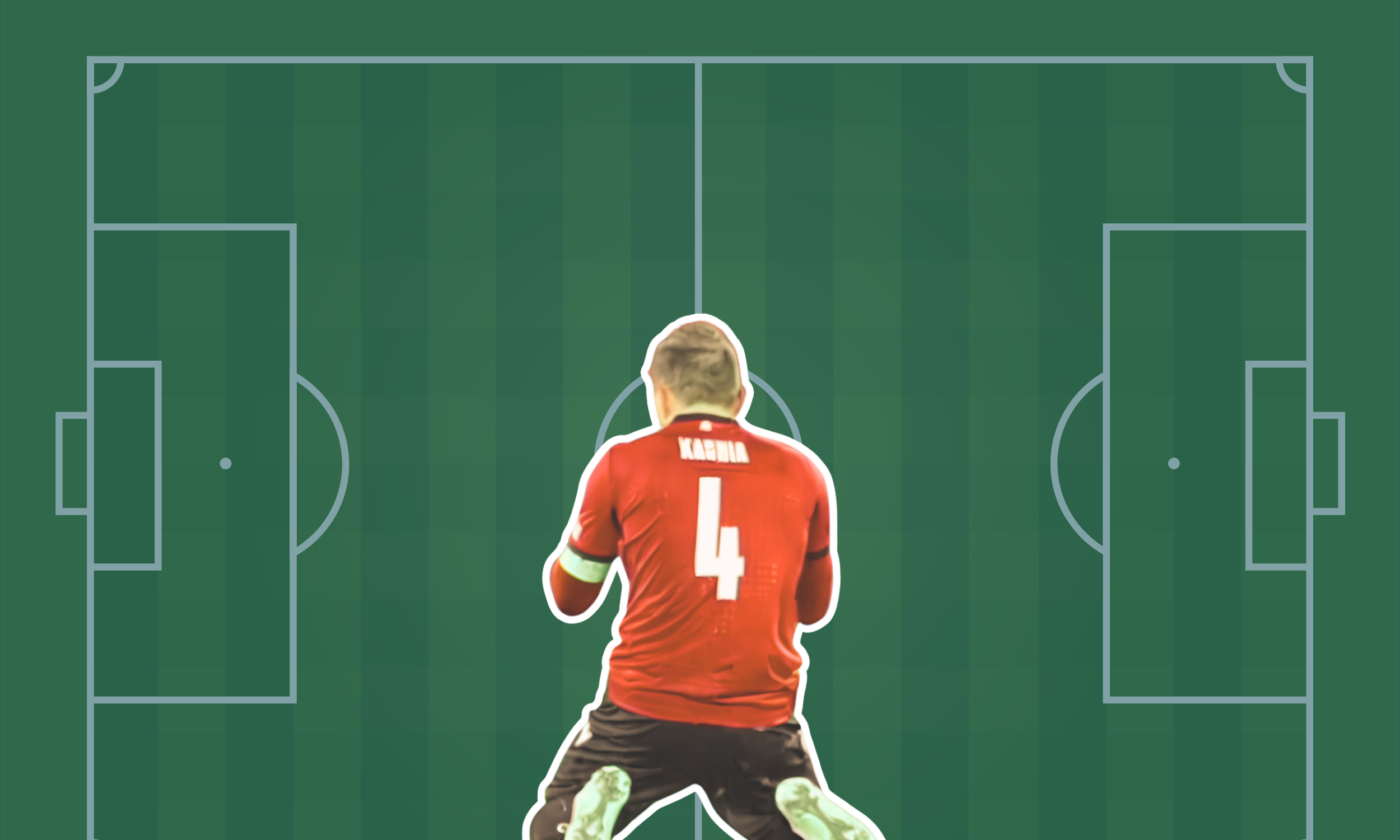Dispatch – April 1: Good (O-)Men
“Football does unite Georgia,” Guram Kashia, the 36-year-old captain of the Georgian national football team, told reporters late on March 26, shortly after leaving the field following a historic victory over Greece. Excited and exhausted at the same time, Kashia struggled to find words. So was the rest of the country: the match, decided on penalties after 120 minutes of dramatic scoreless play, allowed Georgia to qualify for the European Championship for the first time in its history, fulfilling a decades-long dream for the overwhelmingly football-obsessed nation (read more about that obsession in our earlier blog). The noise and celebrations in the streets of Tbilisi and other cities continued into the wee hours of the morning. Songs were sung, tears of joy were shed, hugs were exchanged, and dance moves were attempted – sometimes with great success.
A week passed, and the shared euphoria had not abated. The popular joke goes that overnight, Georgia has taken Finland’s status as the “happiest country,” leaping up from 91st place in the ranking. But with all happiness comes an anxious thought – what does it mean? Will it make us better? It just might – and there is no better illustration of this than the story of the captain himself.
Here is Nini and the Dispatch to talk about (another) historic victory and the impact it may have on Georgia.
The Defender
On November 13, 2017, a violent mob stormed Kutaisi’s Torpedo Stadium, where the national team was scheduled to play a friendly match against Belarus. Georgian March – the most prominent far-right group in the country at the time – arrived in the western Georgian city with one mission: to disrupt the match and put more pressure on Kashia, a defender and vice-captain, to resign from the team. Kashia’s ordeal began after he agreed to wear a rainbow armband as part of a major anti-hate campaign in the Eredivisie, a top Dutch football league. The Georgian defender moved to the Netherlands in 2010 to play for Vitesse and has led the club to some of its biggest victories over the years. The game won him the love of the Dutch fans, and he was soon elected club captain. However, his foreign career cost him a major scandal back home.
The rainbow armband quickly made him the target of a virulent hate campaign that divided the country. Conservative voices wanted him out of the national team – or at least to apologize. The November friendly against Belarus was when things got really physical and dangerous. The Georgian March managed to enter the stadium and demonstratively burned the rainbow flag to torment the vice-captain. The growing backlash at Kashia failed. As a true defender, he went on to proactively protect not himself but the principles he stood for. “I don’t regret what I did,” he said in one of his interviews, “I don’t care who you are, what you do in your life, as long as you don’t hurt others.
… and as long as you let me watch the game
Some of the fans, teammates, and Georgian liberal groups openly supported Kashia. And the hate groups’ attempts to disrupt the Belarus game ended up being counterproductive: The people of Kutaisi weren’t having it. Videos showed fans in the stadium not welcoming the marchers. After the game, locals expressed dissatisfaction with the violent stunt: some were unhappy that they had not been able to get in on time to watch the game, and others said they had come to show their support for the vice-captain. There were reports that those who still managed to get in on time tried to silence the far-right noise with their supportive chants.
Months and years passed, but the Georgian defender never hid from his past. What’s more, he readily reflected on that controversy – and on his fears of “not being true to myself.” He proudly accepted awards for his courage, including from UEFA and Georgian President Giorgi Margvelashvili. The player began to appear frequently in various social campaigns, repeatedly meeting with young fans to talk about gender equality or to speak out against bullying and violence.
But it takes a lot more than being a liberal darling to continue playing for the national team in a conservative country – and in a sport known to be rife with homophobia. This is especially true for defenders, who, unlike forwards, are judged more by their mistakes than their successes. His haters never forgot the rainbow band, which meant that every mistake would cost him extra hate.
Kashia recently waded into more controversy: a few months ago, the national team captains were allowed to name the three best footballers in the world for the (controversial) Best FIFA Football Awards 2023. Kashia placed Khvicha Kvaratskhelia, the most famous Georgian player today, in third place behind Messi and Mbappe. This upset some fans who slammed the captain for choosing objectivity over patriotism, and some saw it as a logical continuation of his “unpatriotic” actions.

Boys next door
Over time, however, it became clear that his actions had earned him more love than hate. Though often not openly expressed, it often seems that his uncompromising stance and courage invited respect even from those who did not necessarily share his values. His sincere and caring qualities made him a good leader. In 2022, he became captain of the national team. A week ago, his team made history by qualifying for the European Championship. It happened in Kashia’s 112th match for the national team, a record for any Georgian player.
Kashia “has enough courage for everything,” said Nika Kvekveskiri, another Georgian player, back in 2017. Kvekveskiri was one of the few who openly defended his teammate and the things his teammate defended. A week ago, it was Kvekveskiri who scored the winning penalty, thrusting the 31-year-old midfielder into a whole new spotlight. His own story of displacement, early life struggles, and perseverance made the rounds on social media. The same was true for the rest of the team – some young, some older, all looking like the simple, humble, relatable boys next door. Many attribute the victory to the remarkable dedication they showed on the field and the tremendous support they received from their fans – which was the entire country.
Georgian athletes have excelled in many sports. But football, the one game in which the country has struggled to achieve on a team level, has always held a special significance. The flags, celebrations, and current excitement are less about pride in what the country is now and more about the hopes for what it can become through hard work and dedication. The victory on March 26 served as a serotonin boost, a unifying force for a society that has seen much polarization and division in recent years.

“Maybe we are not all that bad”
The victory comes as some privately worry that historic achievements – of which Georgia has had quite a few lately – are something wicked politicians will try to exploit in an election year. Maybe they will, and maybe it will help them. And yet the current happiness and unity won’t help their tactics – or the tactics of anyone trying to score political points through hatred and division. Autocracies thrive on hatred and pessimism. The new optimism and confidence come just when ruling elites try to win elections by bringing out the worst in Georgian voters.
On the night of March 26, Kashia’s name was chanted repeatedly. The night also saw some booing – directed at politicians who, after years of incessant attempts to pit the country’s citizens against each other, shamelessly hoped to join those united in joy.
